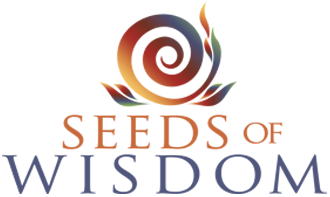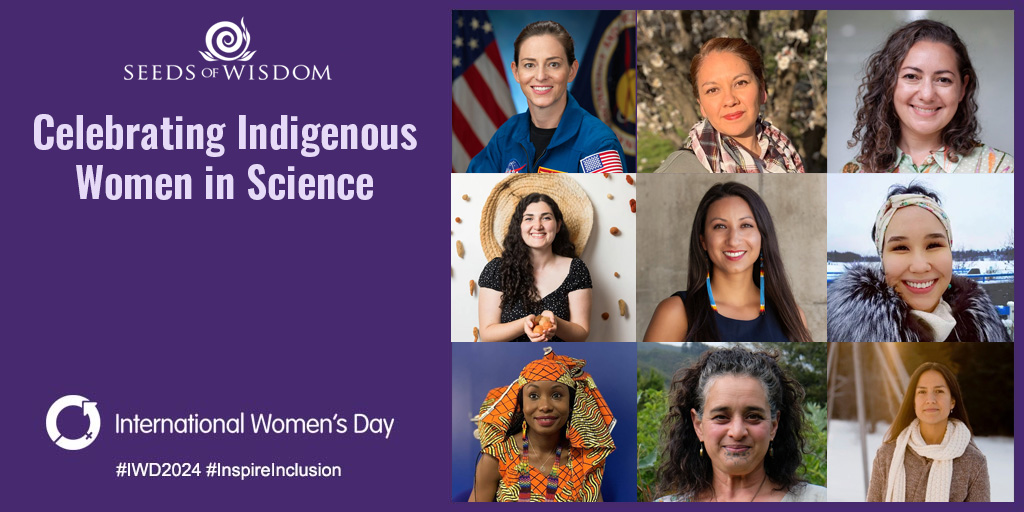
By Nancy Cates
Each year, on March 8th, International Women’s Day emerges as a beacon of global celebration, honoring the myriad achievements of women across the world. In observance of this significant occasion, we spotlight a select group of Indigenous Women in Science, acknowledging their remarkable contributions to humanity’s collective knowledge.
Within this curated collection, we encounter nine extraordinary women, each representing a fraction of the vast reservoir of Indigenous female trailblazers propelling transformative change. Their narratives resonate with a resounding theme—an unwavering commitment to interweave their Indigenous heritage and principles with the fabric of contemporary society. They embark on a profound journey, seeking to navigate the intricate intersection between tradition and innovation, illuminating pathways that lead towards a harmonious convergence of Ancient Wisdom and modern technology.
In the pursuit of their respective fields, these women epitomize unparalleled determination, fortified by courage, wisdom, and unwavering dedication. Through their pioneering endeavors, they transcend boundaries, reshaping paradigms, and redefining what is possible. As we honor their contributions, we recognize the profound impact of their endeavors, planting seeds for generations yet to come.
Nicole Aunapu Mann
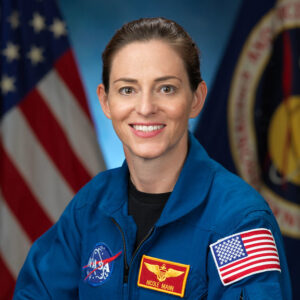
Wailacki of the Round Valley Indian Tribes (Northern California, USA)
First Indigenous woman in space
“We explore for the benefit of all humankind. From space, when you look at Earth you don’t see borders, you don’t see boundaries. You see a human race, and you realize if we work together the things that we’re able to accomplish are incredible.” Source
Colonel Nicole Mann was selected by NASA in June 2013. She launched to the International Space Station (ISS) as commander of NASA’s SpaceX Crew-5 mission aboard the SpaceX Crew Dragon spacecraft, Endurance, on October 5, 2022. The Crew-5 astronauts lived and worked aboard the ISS for nearly six months as part of Expedition 68. During their mission, Crew-5 contributed to hundreds of experiments and technology demonstrations, including cardiovascular health, bioprinting, and fluid behavior in microgravity to prepare for human exploration beyond low-Earth orbit and to benefit life on Earth.
The California native, registered with the Wailacki of the Round Valley Indian Tribes, holds a Bachelor of Science in Mechanical Engineering and a Master of Science in Mechanical Engineering.
Amelia Marchand
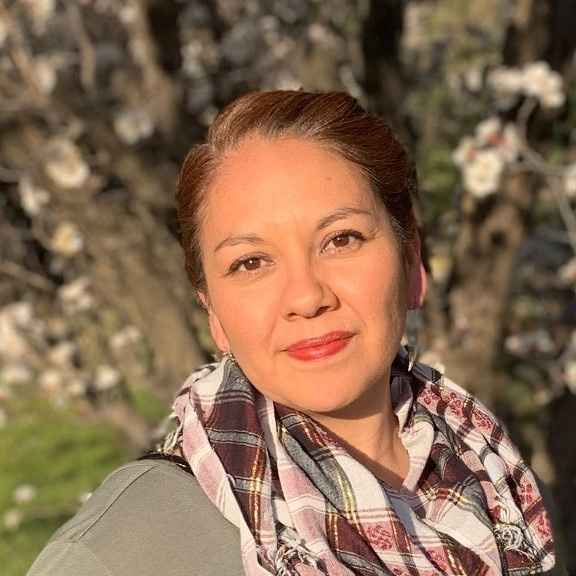
Confederated Tribes of the Colville Reservation (Washington State, USA)
Tribal Climate Liaison, Indigenous Advocate, Scholar, and Climate Crises Public Voices Fellow
“Indigenous people have so much to give, if people would just stop taking it… For so long, our knowledge has been extracted.” Source
Amelia has more than 25 years working in the cultural and natural resource fields, with professional work and personal experiences increasing her dedication to Indigenous rights, environmental justice, and the implementation of socially equitable solutions for climate change adaptation and mitigation actions that not only honor values of community and reciprocity, but also heal wounds from intergenerational trauma and institutional colonialism.
She received a bachelor’s degree in Anthropology with a minor in American Indian Studies from Eastern Washington University and a master’s degree in Environmental Law and Policy from Vermont Law School. As a citizen of the CTCR with diverse heritage, she enjoys dedicating her free time to her family, friends, and the numerous Indigenous and environmental conservation nonprofits she serves and supports.
Michelle Hobbs
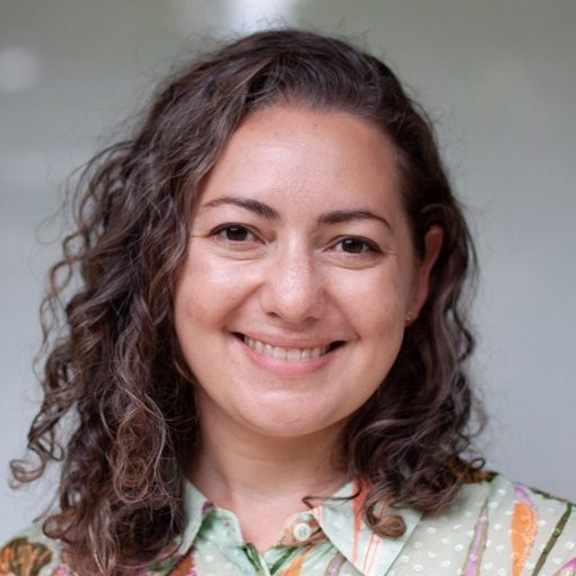
Bidjara (Central Queensland, Australia)
Co-Recipient of the 2023 Australian Academy of Science Aboriginal and Torres Strait Islander Scientist Award
“Current risk assessment methods and natural resource management tend to limit Indigenous involvement to cultural heritage objects or artefacts, while cultural values or uses of biota or landscapes are not explicitly addressed, despite their clear importance to Indigenous peoples.” Source
Michelle Hobbs is an Associate Lecturer and PhD candidate at Australian Rivers Institute and School of Environment and Science, Griffith University. Michelle’s area of research includes freshwater ecology of inland and tropical rivers, particularly freshwater mussels and fish, and recognition of Indigenous knowledges and land management practices. Michelle has several years of industry experience as an environmental consultant. This work has investigated population and community ecology of marine and freshwater systems, water quality assessments, and impacts of mining and water resource development. Michelle has extensive remote field experience including the Murray-Darling Basin, northern Western Australia, far north Queensland and Papua New Guinea, as well as international experience in the Philippines, Laos, Indonesia and Canada.
Stephanie Beaupark
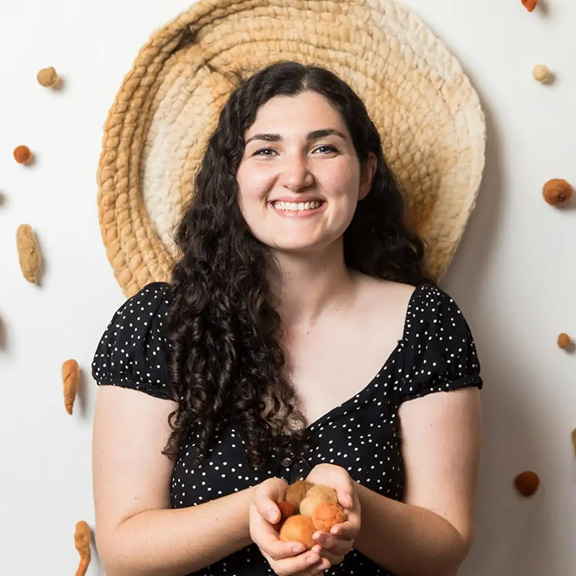
Ngugi (Southeastern Queensland, Australia)
Co-Recipient of the 2023 Australian Academy of Science Aboriginal and Torres Strait Islander Scientist Award
“I hope the better integration of [Indigenous] knowledge systems will also allow us to better take care of Australia and create a sustainable future for textiles colourants and alternatives to mainstream artmaking materials.” Source
Stephanie is a proud Indigenous person with a background in science and visual arts. She recently completed a double bachelor degree with distinction, majoring in Visual Arts and Chemistry, and a minor in Archaeology. Her objective is to be a natural products chemist, specifically looking into the chemistry of dyes made from Australian native plants. Also, she is passionate about incorporating Indigenous knowledge systems into scientific understanding and investigation. Stephanie wants to utilize art as a medium for communicating science to be more accessible to the general public, as well as to decolonize science to reclaim Indigenous culture and Identity as an essential aspect of scientific research.
Lydia Jennings, PhD
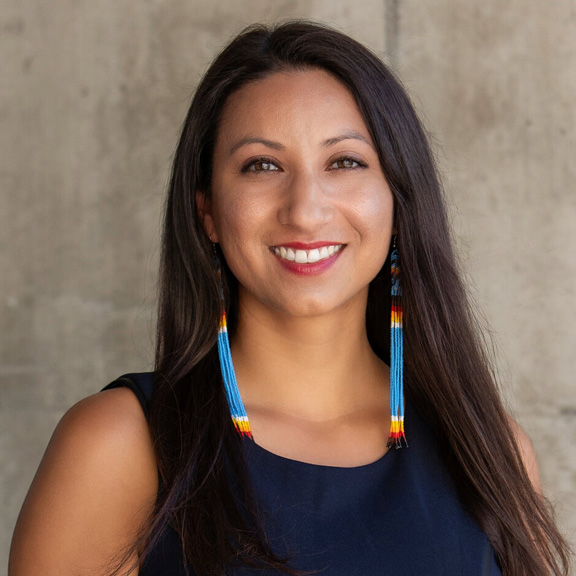
Pascua Yaqui Tribe (Yoeme) and Huichol (Wixáritari) (Southern United States and Mexico)
Environmental Soil Scientist
“Within native epistemologies and identity, we see a lot of Nature as teachers and relatives… I didn’t really think about natural resources until I went to school and we would talk about quantifying the value of water, mountains, and timber and how strange that was.” Source
Dr. Lydia Jennings, citizen of the Pascua Yaqui Tribe (Yoeme) and Huichol (Wixáritari), earned her Bachelors of Science from California State University, Monterey Bay in Environmental Science, Technology and Policy. She completed her Ph.D. at the University of Arizona in the Department of Environmental Sciences, with a minor in American Indian Policy.
Her research interests are in soil health, environmental data stewardship and science communication. Lydia is a 2014 University of Arizona NIEHS Superfund Program trainee, a 2015 recipient of National Science Foundation’s Graduate Research Fellowship Program, a 2019 American Geophysical Union “Voices for Science” Fellow, a 2020 Native Nations Institute Indigenous Data Sovereignty Fellow, and a 2021 Data Science Fellow. Lydia is currently a Presidential Postdoctoral Fellow at Arizona State University’sThe School of Sustainability and the Research Fellow at Duke University’s Nicholas School of the Environment.
Roberta Tuurraq Glenn-Borade
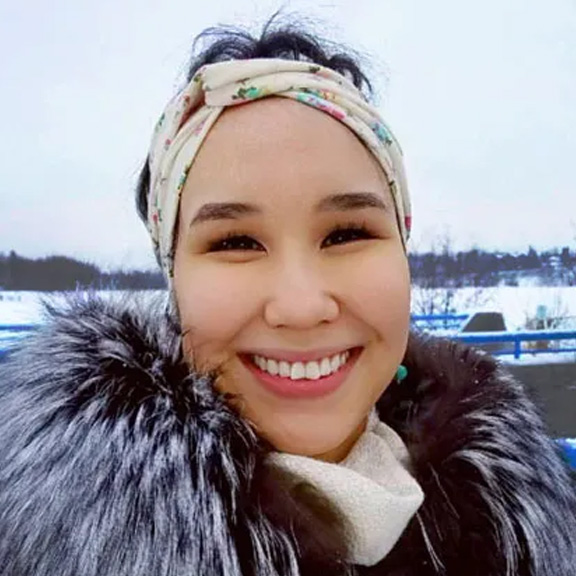
Iñupiaq (Alaska, USA)
Project Coordinator & Community Liaison, Alaska Arctic Observatory & Knowledge Hub (AAOKH)
“Indigenous knowledge holders have a wealth of information about the environment around them and how it’s changing. That wisdom is necessary to be able to safely hunt, live and thrive in the Arctic,” Glenn said. “I believe it is also necessary to understand and mitigate climate change impacts.” Source
Roberta, who is from Utqiaġvik (formerly known as Barrow), Alaska, began her studies in geography in 2014 and sees community-based monitoring as both a challenge and an opportunity.
Her work connects scientific data points to information collected through years of careful observation, with the intention of better informing planning, mitigation and adaptation in coastal Alaska. She holds a strong belief that Indigenous participation in these observations provides vital context beyond mere data collection.
She turned this into a Storymap project that combined these observations from community members across Arctic Alaska with data collected by scientists at AAOKH. This Storymap reveals the larger impact of warming temperatures, changing wind patterns, eroding coastlines, and shifting sea ice. These observations can now be used to better inform planning, mitigation and adaptation in coastal Alaska.
Hindou Oumarou Ibrahim
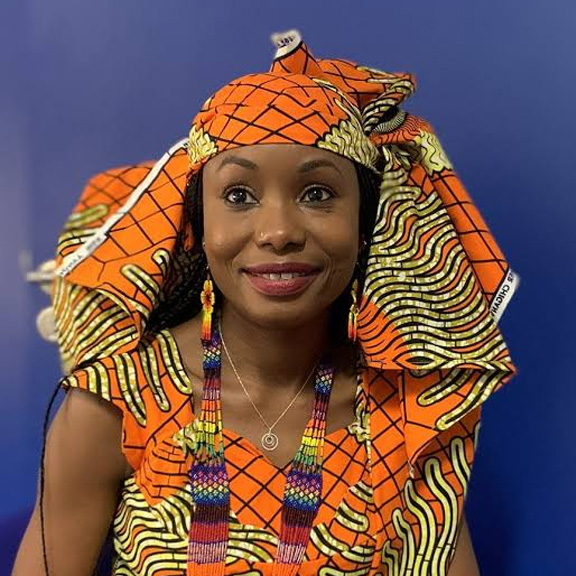
Mbororo (Chad, Africa)
Environmental Activist Geographer
Follow Hindou Oumarou Ibrahim:
Twitter | Instagram
Facebook | LinkedIn
“Indigenous peoples are often among the first to notice climatic disruptions, to sound the alarm on the disappearance of living species. Living on the frontlines, next to nature, we are witnesses to these changes.” Source
Hindou Oumarou Ibrahim is a member of the Mbororo pastoralist people in Chad and President of the Association for Indigenous Women and Peoples of Chad (AFPAT), which she founded at the age of 16.
She is an advocate for the greater inclusion of indigenous people and their knowledge and traditions in the global movement to fight the effects of climate change. Oumarou Ibrahim received the Pritzker Emerging Environmental Genius Award and was appointed as a United Nations Sustainable Development Goals Advocate.
She serves as a Member of the United Nations Permanent Forum for Indigenous Issues; Member of the Indigenous Peoples of Africa Coordinating Committee (IPACC); Member of the Advisory Committee to the Secretary-General’s 2019 Climate Action Summit; and Conservation International Senior Indigenous Fellow. In 2019, she was listed by Time Magazine as one of 15 women championing action on climate change.
Dr. Jessica Hutchings
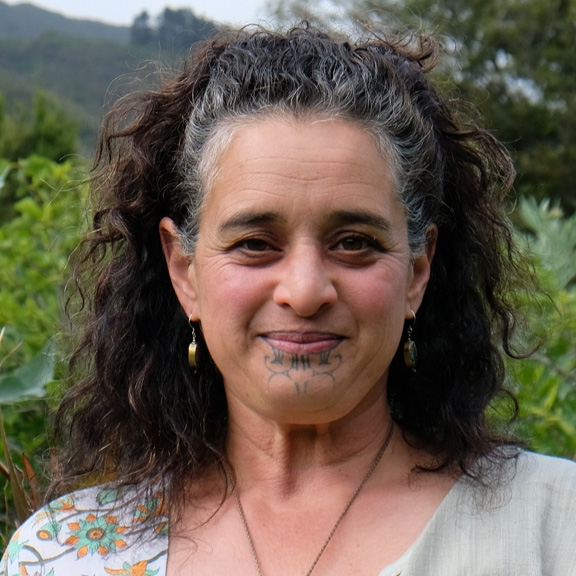
Ngāi Tahu, Ngāti Huirapa, Gujarat (South Island, New Zealand)
Founded Papawhakaritorito Charitable Trust
“One of the impacts of colonization for Indigenous peoples all over the world was that our knowledges were seen as primitive, as savage, as naïve, as not worthy, as not scientific, but we have hundreds of years of scientific knowledge as Māori through intergenerational observation and practices of gathering and collecting kai moana or kai [food] from the environment.” Source
Dr. Jessica Hutchings is a decolonizing researcher in the areas of Māori food sovereignty, food security, cultural and intellectual property rights, and the restoration of the environment through the restoration of Indigenous rights in Aotearoa (New Zealand.) She is actively involved with Te Waka Kai Ora (the National Māori Organics Authority) as a grower and a lead researcher to develop a tikanga-based Indigenous verification and validation system for food and agriculture called Hua Parakore.
She is a founding trustee of Papawhakaritorito Charitable Trust, whose founding purpose is to deliver education, research, and practice that uplifts Māori food sovereignty and the Hua Parakore. She lives and grows food with her wife on 5.6 acres of Hua Parakore-verified land north of Wellington.
Dr. Nadine Caron
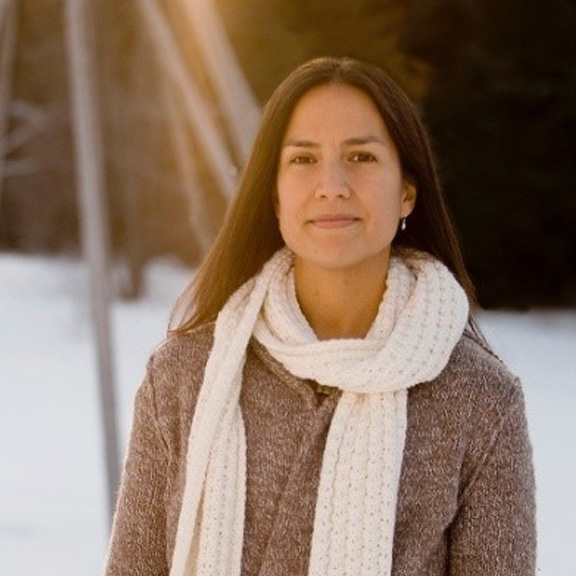
Ojibway (British Colombia, Canada)
Professor, University of British Columbia Co-Director, UBC Centre for Excellence in Indigenous Health First Nations Health Authority Chair in Cancer and Wellness
Learn more about Dr. Nadine Caron
“We don’t have the Indigenous medical geneticists, we don’t have the Indigenous genetic counselors, we don’t have the Indigenous genomic researchers, but that’s all going to change.” Source
Nadine Caron is the first Indigenous woman to graduate from the University of British Columbia’s medical school at the top of her class and Canada’s first woman First Nations general surgeon. Born in Kamloops, British Columbia, she completed her Bachelor of Science in Kinesiology at Simon Fraser University in 1993, and completed her medical degree at the University of British Columbia Faculty of Medicine. Dr. Caron holds a master’s in Public Health from Harvard University. She works as a general endocrine surgeon and is an Associate Professor in the Department of Surgery in the UBC Faculty of Medicine.
Dr. Caron is an advocate for marginalized peoples’ rights in health care and research. Her scholarly and professional activities center on optimizing Indigenous and northern Canadians’ health, and addressing inequities in access to surgical services, cancer care, prescription medications and research.
In their daily endeavors, these Indigenous Women in Science labor tirelessly to forge a brighter tomorrow, drawing upon the timeless wisdom of their Ancestors and integrating the invaluable teachings imparted by the Elders. Their collective mission transcends the boundaries of conventional science, as they strive to reclaim and perpetuate Indigenous traditions that have endured the eroding tide of colonial influence. In a world where the echoes of colonialism persist, they labor to restore dignity to practices long marginalized, and to revive the cultural tapestry that enriches the very fabric of humanity. Through their steadfast commitment, they endeavor to weave a narrative of resilience and renewal, bridging the chasm between past and present, and guiding future generations toward a more inclusive and equitable future.
